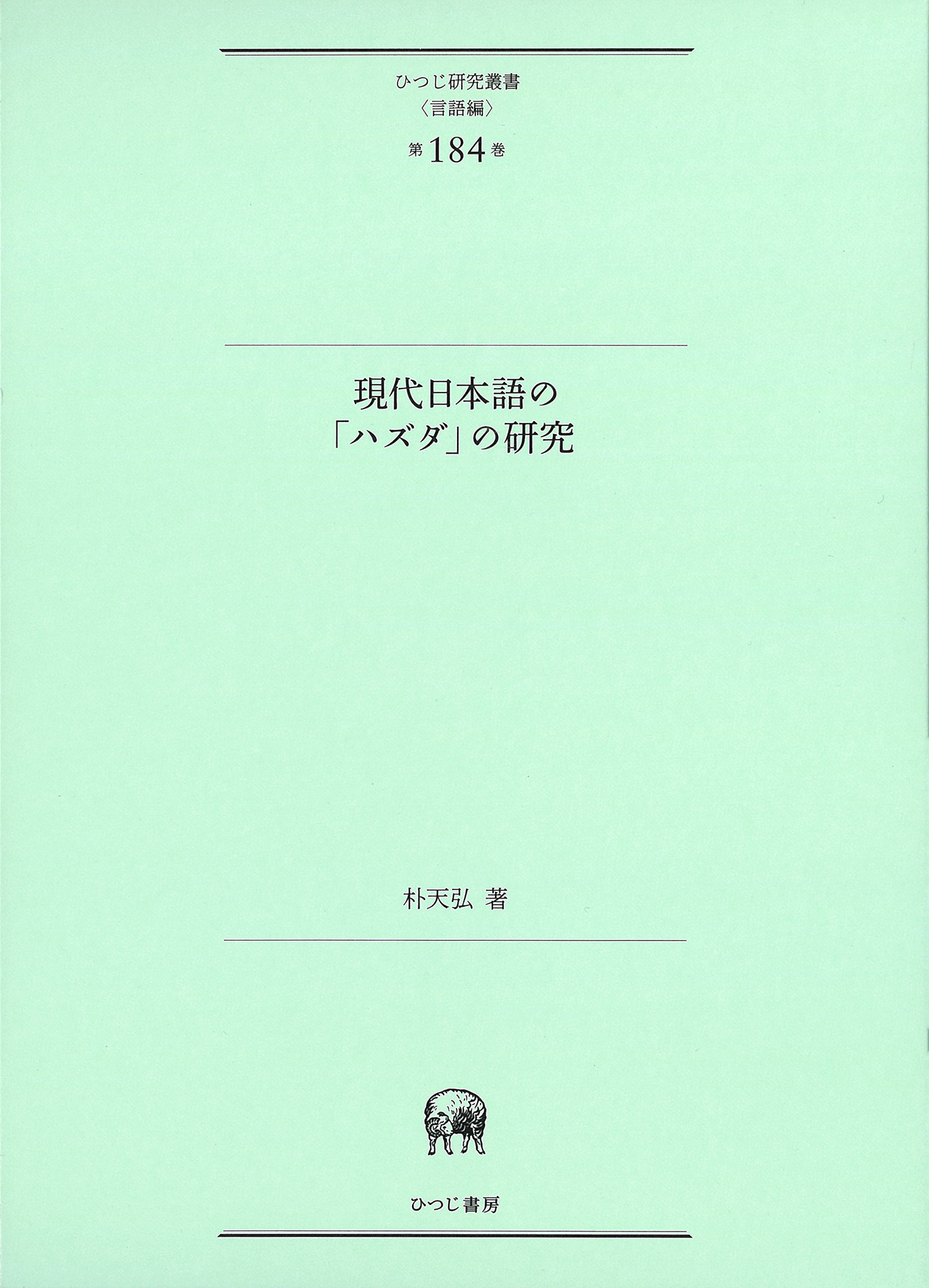
Title
Hitsuji Kenkyu Sosho (Language) Vol.184 Gendai-Nihongo no “Hazuda” no Kenkyu (A Study on “Hazuda” in Modern Japanese)
Size
296 pages, A5 format, hardcover
Language
Japanese
Released
March, 2021
ISBN
978-4-8234-1083-3
Published by
Hituzi Shobo
Book Info
See Book Availability at Library
Japanese Page
This book is an attempt to clarify the basic meanings and functions of “hazuda,” which appears at the end of sentences in modern Japanese, by explaining various uses of “hazuda” in a unified manner, and to show that the whole picture of “hazuda” can be explained by a single function.
My interest in counterfactual conditionals provided initial impetus for my research on “hazuda.” The fact that “hazuda” has various usages including a counterfactual one, as in “Watashi wa iku hazudatta (demo ikenakatta) [I was supposed to go (but I could not)]” has been a mystery for me. This is because “hazuda” has usage in common with other Japanese epistemic modality forms, for example, such as “darou”, but also has a counterfactual one that is not found in other forms.
If knowledge and information of the speaker has constituted the ground for judgment when s/he expresses his/her judgment on a certain state of affairs or event, there must be a difference in how the knowledge and information can be used according to their forms. This led me to think that multiple uses of “hazuda” can be explained in a unified manner by clarifying all these forms.
Based on the hypothesis that the main function of “hazuda” is to confirm knowledge, this book proposes and demonstrates that “hazuda” has a “knowledge confirmation” function, both in contexts in which an unconfirmed state of affairs that involves inferential processes appears and in contexts in which a confirmed state of affairs that does not involve inferential processes appears. Here, knowledge that use in this book refers not to an individual piece of information that the speaker perceives at the time of utterance, but to inherent knowledge that the speaker already has at the time of utterance such as empirical knowledge or general knowledge.
The “knowledge confirmation” function is at work when there is a gap between what is true and what the speaker believes to be true or what he or she presumes to be true, and “hazuda” is used less often in contexts in which no question arises about the alleged event in the process of knowledge confirmation. In contrast to this, the more strongly the question is felt, the more frequently “hazuda” is used. I showed more clearly the function of the “hazuda” form by comparing it to the “darou” and “ni chigainai” forms, which have been said to have common usage with “hazuda,” from the perspective of “hazuda” as “knowledge confirmation.”
Finally, I examined whether the knowledge confirmation function of “hazuda” exists in other languages and contrasted it with Korean “-(u)l kesita” from a typological perspective. While “hazuda” and “darou” are forms in Japanese that are based on knowledge “constrained by direct evidence,” the same function in Korean was found to be played by the “-(u)l kesita” form. In the case of Japanese, “hazuda” as knowledge confirmation and “darou” as “suspension of judgment” are two factors that determine the degree of certitude, while in the case of Korean, “-(u)l kesita” determines the degree of certitude depending on the context. Comparing forms with a common meaning and function in different languages and understanding their central functions is expected to be useful in the research on neighboring East Asian languages from a linguistic topological standpoint, apart from individual studies. In the future, I would like to explore the problem of how to situate “hazuda” from the modal perspective.
(Written by: Chunhong Park / March 28, 2022)
Related Info
The 1st UTokyo Jiritsu Award for Early Career Academics (The University of Tokyo 2020)
https://www.u-tokyo.ac.jp/ja/research/systems-data/n03_kankojosei.html




 eBook
eBook